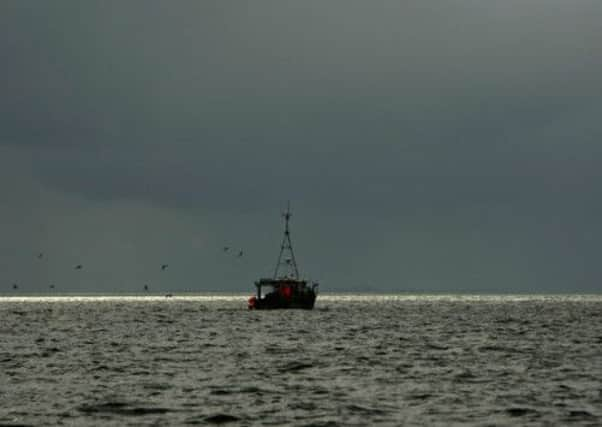Ban on fish discards step closer after EU talks


The all night talks, which finally ended at 6.20 am, have paved the way for the scandal of dumping unmarketable fish back dead into the sea to be completely outlawed in European waters by 2019. and for increased regionalisation in the management of local fisheries.
The proposed reforms will now go to the European Parliament to be implemented by MEPs.
Advertisement
Hide AdAdvertisement
Hide AdRichard Lochhead, the Scottish Fisheries Minister, praised the progress made at the talks at the European Fisheries Council and said the deal would provide the flexibility needed to deliver a better future for Scotland’s fishing industry.
He said: “We are getting very close to the finish line on CFP reform and it’s vitally important Member States – and the European Parliament - don’t drop the baton now.”
Mr Lochhead continued: “Tonight’s negotiations were focussed on agreeing details to ensure the new CFP can deliver for our seas and our fishing communities. Without workable measures to deliver improvement the notorious policy would continue to fail, and while the deal is by no means perfect given the constraints Scotland is under, the agreement reached is a significant step forward
“For decades we have fought to bring more control over our fishing sector out of Brussels to local fisheries. The regionalisation deal which has been agreed will allow a degree of decision making to be brought back from Brussels.”
Discards ban
Mr Lochhead explained: “It was very important to ensure Council stuck with the agreed general approach on regionalisation, ensuring high level management plans are developed which leave enough flexibility for the detail to be agreed local to each fishery. Without such a regional approach, the ambitious objectives we are setting ourselves will prove very difficult to achieve.
“The other key plank in discussions was ensuring that after securing a historic agreement in February to finally end the dreadful practice of discards, we worked out the details of how the discard ban will operate. It was crucial - and very challenging – to get all Member States to agree to the implementation of ambitious and enforceable landing obligations.”
He added: “The deal now goes back to the Parliament to be agreed through the trilogue process and I hope that MEPs don’t flinch – the bottom line is a tough but workable discard ban is crucial to protecting fish stocks and decentralisation of the hugely damaging one size fits all CFP is crucial to protecting the future of the Scottish fishing fleet.
“Scotland is no friend of the disastrous CFP but even though too much power will still remain in Brussels, it can’t be denied that after several decades of failure an agreement to introduce more regional decision making and to tackle discards are fundamental improvements.”
Advertisement
Hide AdAdvertisement
Hide AdBertie Armstrong, the chief executive of the Scottish Fishermen’s Federation, said the deal had cleared the way for the final stage of the “long overdue” reform of the Common Fisheries Policy.
He said: “On regionalisation we seem to have got the best deal we could hope for which is for Member States to be allowed some degree of latitude in making plans for fisheries management.”
Mr Armstrong added: “We have yet to see the details, but with the political decision to ban discards already taken, we seem to have achieved a mostly common-sense position on its introduction, with the first phase postponed until 2015 and a certain amount of flexibility built into the rest of the programme.”